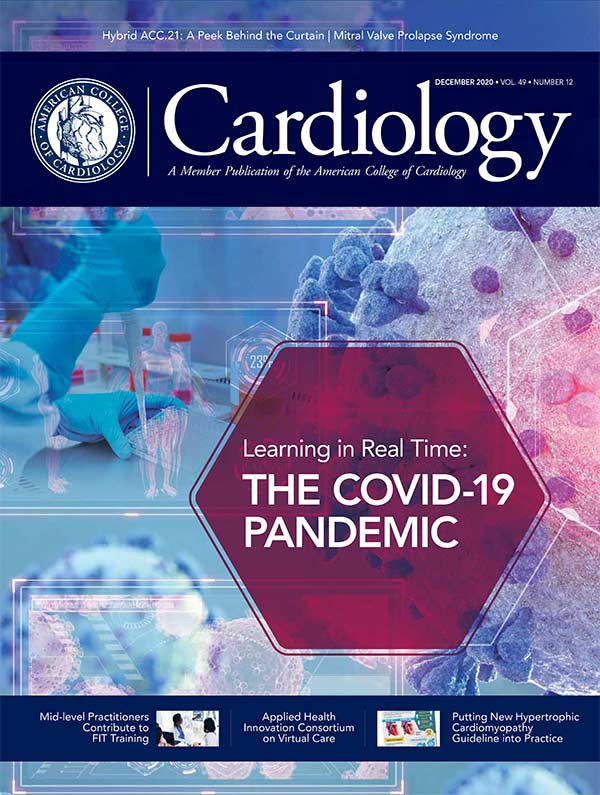Cover Story | Lessons in Fluidity

From the very beginning of the COVID-19 pandemic, the education needs of cardiovascular clinicians around the world have been vast. Whether it was a review of virology and immunology and a need to understand the basics of the virus itself or understanding how to quickly implement telemedicine as a means of continuing to treat and manage patients as safely as possible, the demand for trusted and relevant content was clear.
The College from day one has worked hard to respond to the uncertainty surrounding the novel coronavirus based on limited and constantly changing new data.
The ACC's COVID-19 Hub was developed as a means of helping synthesize available data, share best practices and firsthand accounts from around the globe, and provide important cardiac-specific information and resources for patients and clinicians on emerging COVID-19-related topics like myocarditis, anticoagulation, return to sports, coronavirus infection in children and health care disparities.
Beyond medical knowledge, operational guidance has also been of essence. The College worked quickly to first advocate for important telehealth flexibilities and then once achieved provide guidance on telehealth implementation and quickly changing health policies.
We also worked to engage ACC members in educating members of Congress on issues ranging from PPE to provider relief funding and have developed wellness resources to help health care workers during this time of unprecedented change and uncertainty.
"At the end of the day, COVID-19 has taught us that we all must be fluid learners, not just lifelong learners. We must be willing to change our thinking and our practice and seize new opportunities in order to truly transform cardiovascular care and improve outcomes," says Katie Berlacher, MD, FACC, chair of ACC's Lifelong Learning Oversight Committee and a member of the College's COVID-19 Task Force.
The following are quick tips for navigating the COVID-19 roller coaster taken from an ACC COVID-19 Education Series session featuring Berlacher; Harlan M. Krumholz, MD, SM, FACC; Clyde W. Yancy, MD, MACC; and Cathie Biga, MSN, RN, FACC.
- Remember to be a good team member.
- Collaboration is key. We can learn a lot from our colleagues spanning the entire house of medicine, as well as our partner cardiovascular societies in the U.S. and around the world.
- Continue to be generous and to share your spirit and humanity.
- Take advantage of the early lessons learned and apply them systematically going forward.
- Make certain new information and research is correct before releasing it publicly.
- Transparency is key as vaccines are rolled out and approved.
- Health care professionals should practice what they preach in everyday activities, including always wearing a mask.
- Recognize the diversity of public opinion and respect differences of opinion. However, respect science and evidence as the highest order.
- Don't underestimate the power of advocacy.
- Prevention in cardiology, as well as COVID-19, is key.
Clinical Topics: COVID-19 Hub, Heart Failure and Cardiomyopathies
Keywords: ACC Publications, Cardiology Magazine, COVID-19, Coronavirus, Public Opinion, Healthcare Disparities, Uncertainty, Value of Life, Coronavirus Infections, severe acute respiratory syndrome coronavirus 2, Telemedicine, Health Resources, Pandemics, Myocarditis
< Back to Listings


